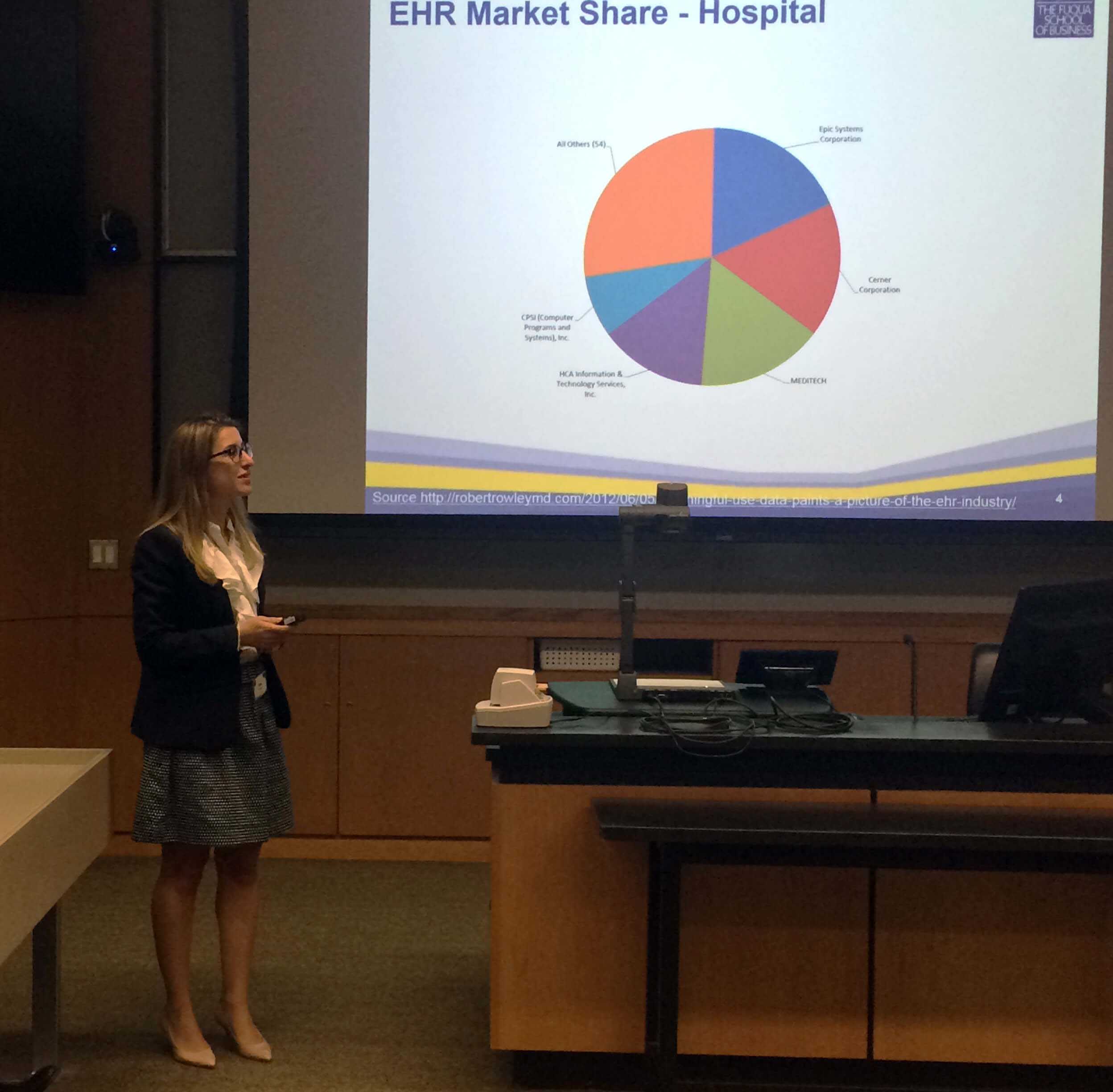Duke Global Executive MBA Student Blog

Rethinking the Business of Health Care

This blog was written by a Cross Continent MBA student prior to the program’s merger with the Global Executive MBA program.
Worldwide, health care costs per capita and health care expenditure as a percentage of GDP keep soaring high, with the U.S. spending 17 percent. More often than not, this does not translate to improved outcomes, which is why many business schools are looking at health care problems as part of their curricula.
At Duke, we are fortunate to be part of a top-ranked business school, have close access to leading nursing and medical schools and a nationally recognized health system (Duke Medicine), and have affiliations with one of the largest business incubators in the world (Research Triangle Park). This is one of the many reasons that attracted me to the Duke MBA.
In line with this, Fuqua offers a Health Sector Management (HSM) certificate that concentrates on and encompasses all the aspects of the business of health care. The HSM coursework was kicked off by a Health Institutions, Systems, and Policy course, better know as ‘Bootcamp.’
This week-long course brought together an auditorium full of MBA students with diverse backgrounds and two things in common—a passion for health care and an appetite for resolving the complexities of the sector. Bootcamp seminars, speakers and discussions included experts in the international perspectives of health systems, biotech, medical device, diagnostics, pharma, providers, payors, health care investments, health policy and health law.
Here are some highlights and key trends in the industry for 2015 based on the insights I gained during Bootcamp.
Miniaturizing big data

One of the challenges of health care is the amount of data generated in each patient visit. Big data has lagged in health care for many reasons including providers making clinical decisions independently, challenges in information sharing and uncertain returns on technology. Big data has numerous applications such as improving care coordination, monitoring patient behavior and preferences, tools that help physicians to drive quality of care, R&D trials, claims and cost data. Miniaturizing data or making meaningful use of it remains a challenge but will be essential in reducing costs and driving value.
Global innovation
Innovation is thought to be essential in lowering costs long term and increasing quality of care. There has been increased attention to global innovation efforts that help expand affordable quality health care. With the world becoming ‘smaller,’ identifying such unique business models for care has become more accessible and spreading new knowledge has become easier.
Payment reform to promote quality and value
With rising health care expenditures being such a concern, coupled with unmatched outcomes, reimbursement systems have matured to drive value and not volume. Organizations are transitioning to accountable care models, where payments to providers are linked to quality outcomes as well as reduction in costs for a population of individuals. This gets more complex where flexibility in care delivery gets compromised as well as a lack of cost structure clarity.
Health care consumerism
As employers or patients become more involved in payments for health services, they become more price-sensitive—although price is not always the currency for quality. Customers may demand more engagement, and will certainly demand more transparencies on price, quality and processes. Customers will also demand better service and a better experience.
Population health versus personalized care
Personalized care has gained more attention in recent years, as patients receive individualized care better matched to their individual needs. It involves genetics and genomics and gets patients more involved in their own care. In parallel, there has been a drift in population health, which looks at the health outcomes of a group of individuals as well as the distribution of outcomes within the group. Numerous factors can accelerate value to population health such as the use of big data, commitment of organizations and risk shift to providers.
In addition to all these takeaways from Bootcamp, the biggest highlight for me was learning about the different health systems around the globe from my HSM classmates. Interestingly, the challenges are for the most part similar, but the approaches are very different. This makes for lots of lessons to be learned from each other in order to improve health care outcomes and reduce costs, as the industry evolves.



